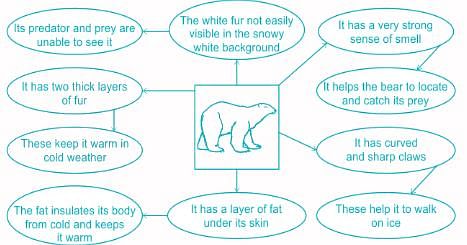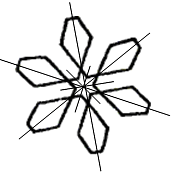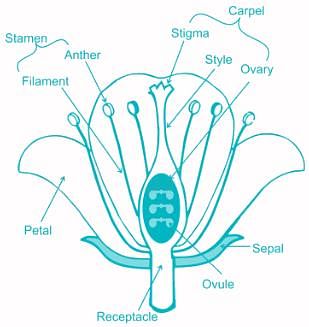KTET Paper 2: Science and Mathematics Test - 7 - KTET MCQ
30 Questions MCQ Test KTET Mock Test Series 2024 - KTET Paper 2: Science and Mathematics Test - 7
If 24 carat gold is hundred percent pure gold and price of 50% pure gold is 30,000. Then find the price of pure gold in 22 carat gold.
Provision of 'knowledge and skill' in Mathematics comes under
| 1 Crore+ students have signed up on EduRev. Have you? Download the App |
White fur of Polar bears help them ________
The number of lines of symmetry of the given figure is
Which of the following two chemical substances are used in the experiment for law of multiple proportions?
If you want to develop haploid plants through tissue culture, the best choice is
The slant height and radius of a right circular cone are in the ratio 29 ∶ 20. If its volume is 4838.4 π cm3, then its radius is:
Which of the following is NOT a cold-blooded animal?
When the air pressure in an area drops, the wind speed increases.
If 'a', 'b' and 'c' are respectively the number of faces, edges and vertices of a pentagonal pyramid, then the value of – 2 is
What is the frequency of our household alternating current?
Select the option which is different from the others in the manner it is applied.
The length, breadth and height of a cuboid are 14 cm,11 cm and 3.5 cm respectively. Its volume is:
You have been provided with three test tubes. One of them contains distilled water and the other two contain an acidic solution and a basic solution, respectively. Which of them will turn red litmus to blue?
Deficiency of which vitamin can cause skin disorders, hyperaemia (excess blood) and swelling of the mouth and throat, angular stomatitis (sores on the corners of the mouth) and hair loss?
(14.96 x 1010) – (3.84 x 108) is expressed in standard form as
Which of the following elements must be available in water for the metamorphosis of tadpoles?
The relative atomic masses of many elements are not whole numbers because
While teaching comparison of fractions in which the numerators are the same
e.g 3/5 and 3/7
Rohit’s response was “since the numerators are same and since 7 is larger than 5, therefore 3/7 is greater than 3/5.
This suggests that
Which of the following statements is/are NOT correct?
I. Force per unit volume is called pressure.
II. Liquids can exert pressure on walls of containers.
III. Force acting on an object can cause a change in it state of motion but not its shape.
______ considers scientific method consists of systematic observation, classification and interpretation of data.
One of the students in a class hardly talks in the class. How would you encourage him to express himself?
Which method is more acceptable for establishing the truth in science?
Which of the following can be used suitably to find out the relative position of a student in a group?
Which of the following documents delineates the learning objectives
Which among the following is not a female reproductive part of plant?
While performing a demonstration along with the lecture in a science class, which one of the following activities mentioned below is incorporating minimum educational values to the learners?
A teacher asked his/her students to complete the following concept map:
With this activity in class, the teacher is using the concept map
A teacher is conducting a demonstration to motivate students, but the demonstration does not result in the expected outcome. The teacher is best advised to
Science includes only relative truths but not absolute truths. This means that
|
100 tests
|




















